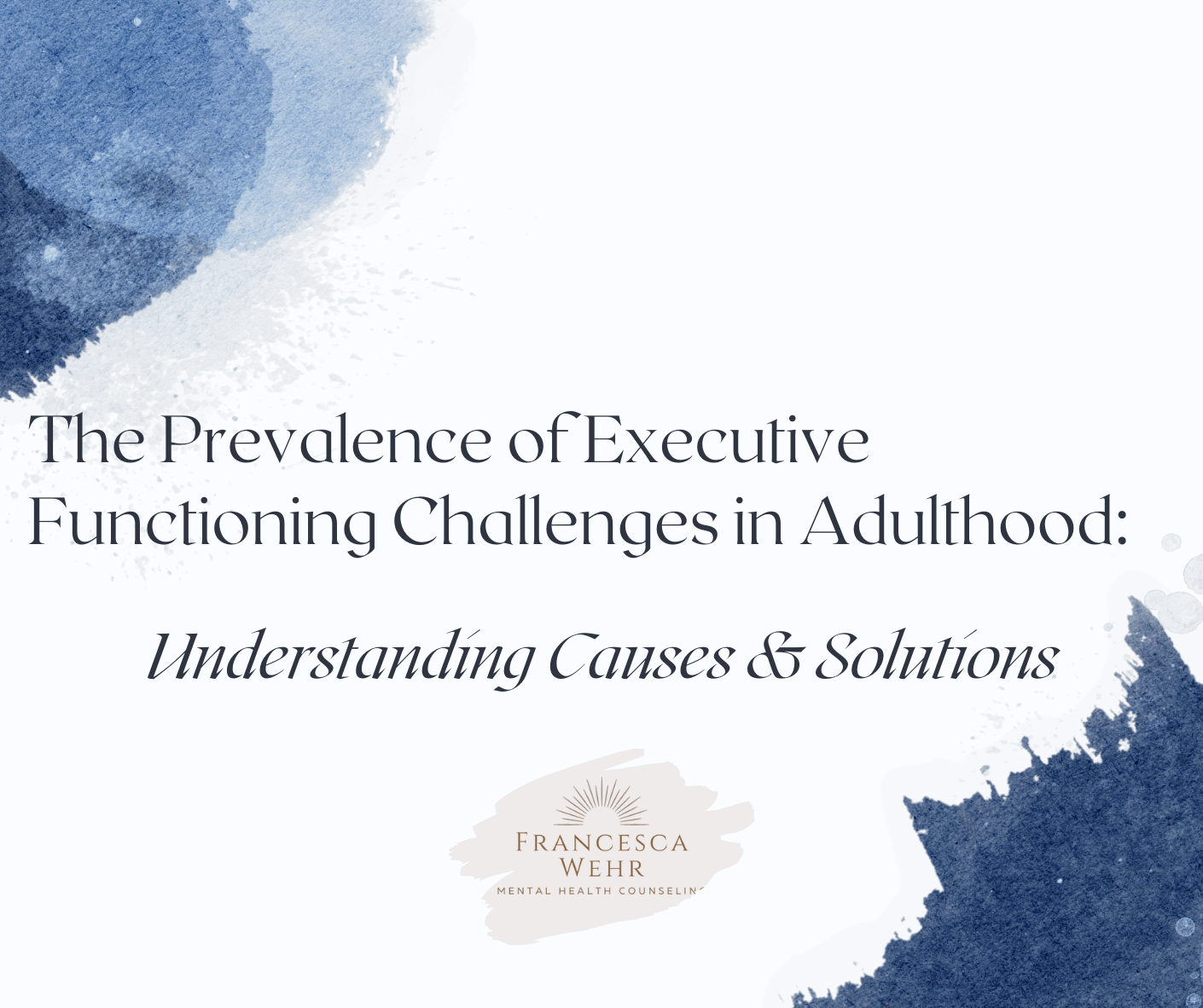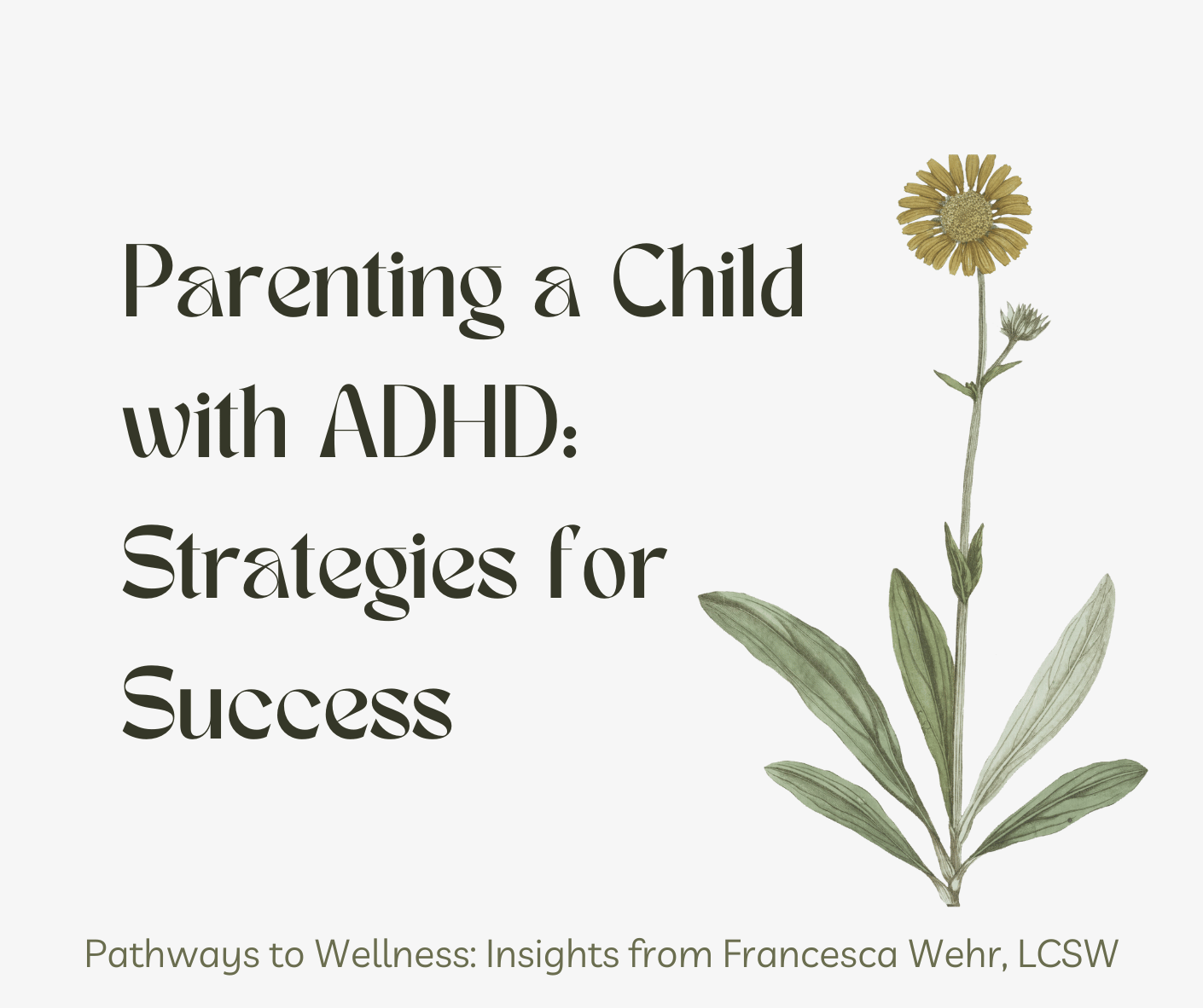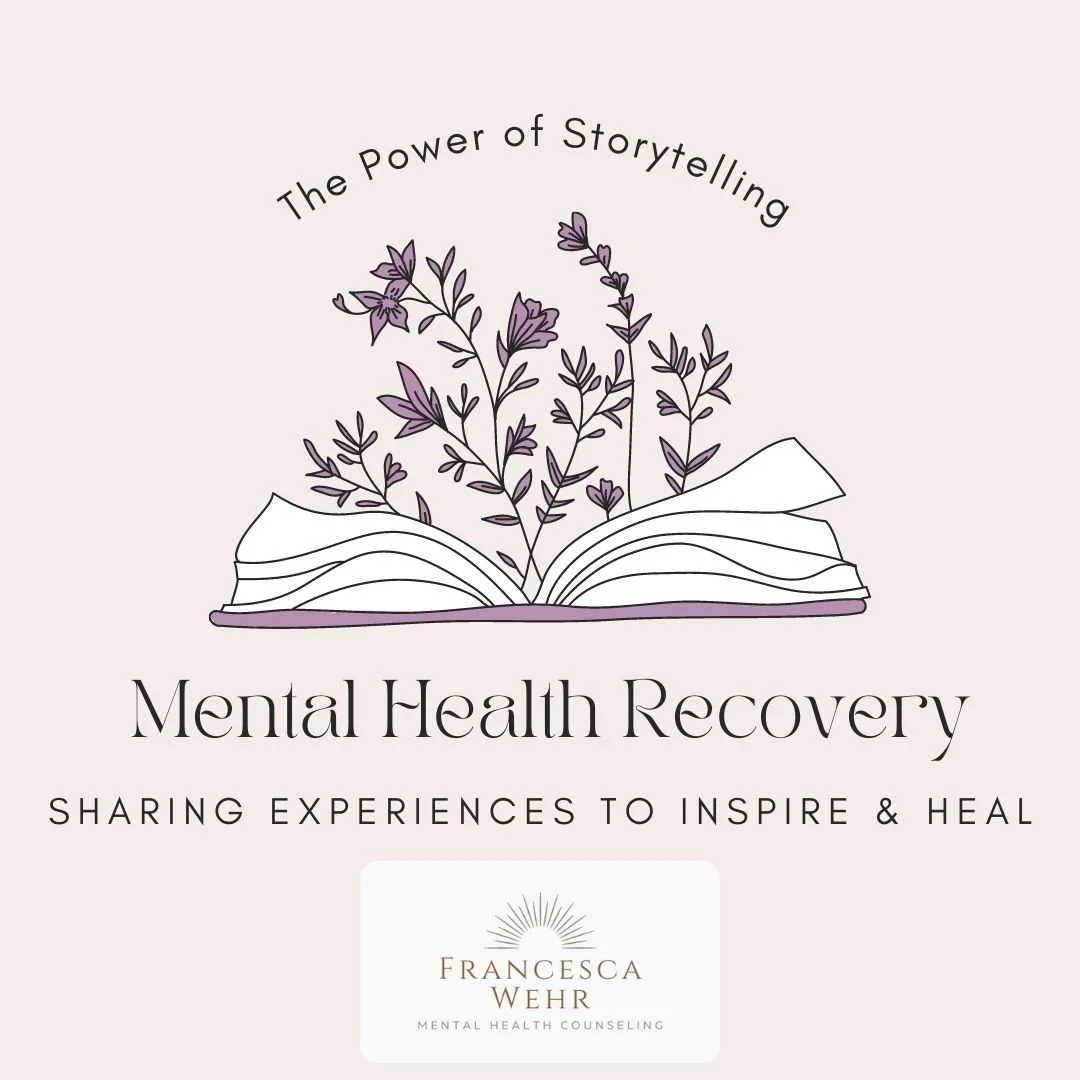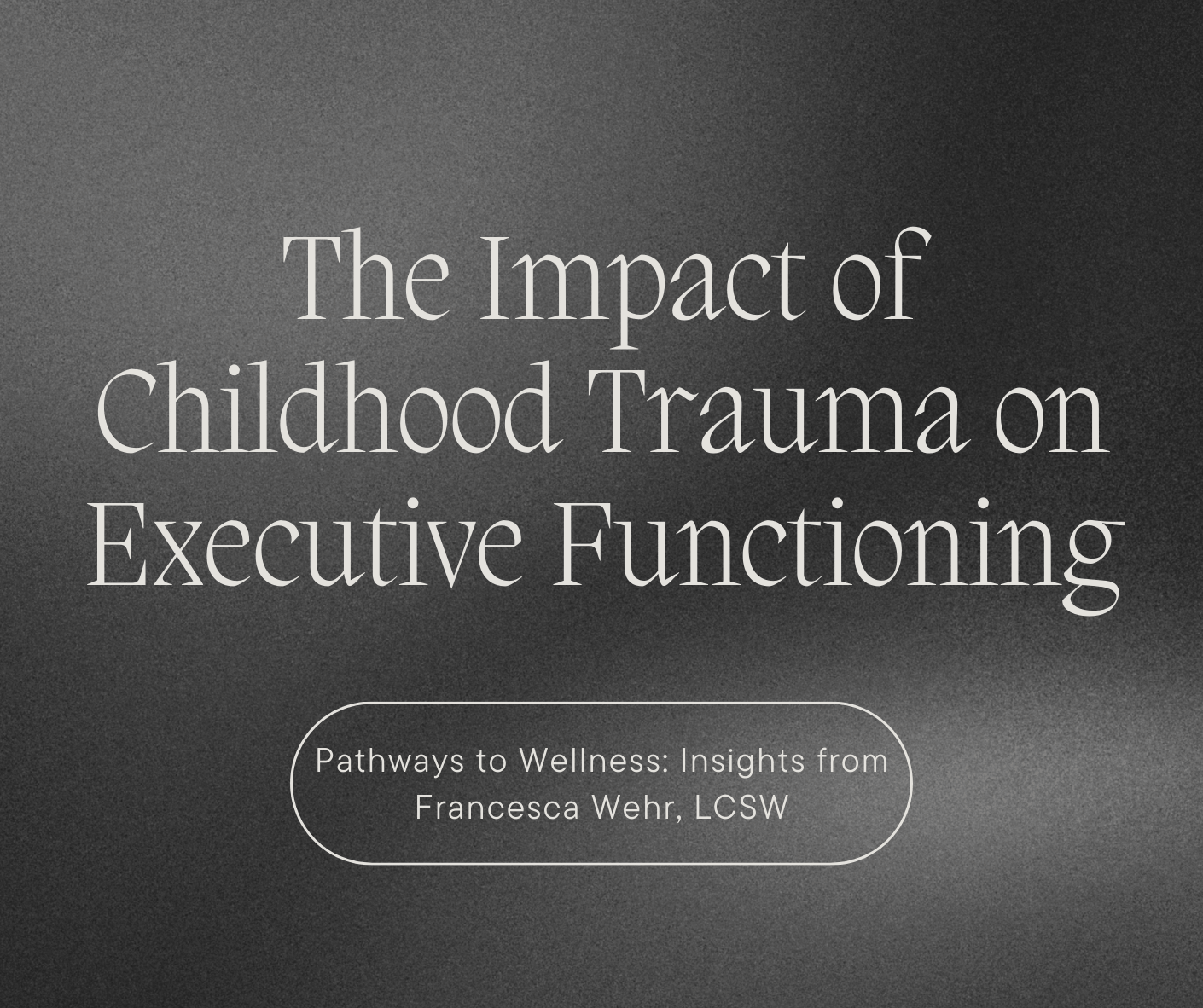
Understanding the Bio-Psycho-Social Model: A Holistic Approach to Mental Health
Mental health is shaped by more than just genetics or environment—it’s a dynamic interplay of biological, psychological, and social factors. In this post, we dive deep into the Bio-Psycho-Social Model to understand how these elements interact to affect mental well-being. Discover how you can take a holistic approach to mental health by addressing all three areas and adopting actionable strategies for better emotional resilience, physical health, and social support.

Executive Functioning Disorders: How They Affect Emotional Regulation & Motivation
Executive functioning disorders can deeply affect an individual’s ability to regulate emotions and stay motivated. From difficulty starting tasks to managing emotional responses, these challenges often arise in people with conditions like ADHD, Autism Spectrum Disorder, and Traumatic Brain Injury. This post explores how executive dysfunction impacts emotional regulation and motivation, common signs to look out for, and effective strategies to manage these issues. Whether you're dealing with these difficulties personally or supporting someone who is, this guide offers valuable insights and practical tips for improving day-to-day life.

Internal Family Systems (IFS) Therapy: A Deep Dive into Healing Your Inner World
Internal Family Systems (IFS) therapy is an innovative approach to mental health that views the mind as made up of different parts, each with its own role and emotions. Whether you're dealing with trauma, anxiety, or self-doubt, IFS helps you identify and heal these parts, allowing your true, compassionate Self to emerge. In this post, we explore how IFS works, the types of parts it addresses, and how this transformative therapy can lead to lasting emotional well-being. Learn how IFS can help you develop self-compassion, reduce inner conflict, and foster personal healing.

Mastering Productivity with the Eisenhower Matrix: A Simple Guide to Prioritizing Your Tasks
Feeling overwhelmed by your to-do list? The Eisenhower Matrix is a powerful tool to help you prioritize tasks based on urgency and importance. By categorizing tasks into four key quadrants, you can focus on what matters most, delegate less important tasks, and eliminate time-wasting activities. Learn how this simple matrix can boost your productivity, reduce stress, and help you achieve your long-term goals.

Understanding Psychosomatic Symptoms: How the Mind Affects the Body
Psychosomatic symptoms occur when emotional stress manifests as physical pain, such as headaches, back pain, or digestive issues. The mind-body connection plays a vital role in overall health, and understanding how mental stress affects the body is key to finding relief. This post explains the causes of psychosomatic symptoms and offers strategies like mindfulness, therapy, and physical relaxation techniques to reduce the impact of emotional stress on your physical well-being.

The Prevalence of Executive Functioning Challenges in Adulthood: Understanding Causes and Solutions
Executive functioning challenges are common in adults, making tasks like time management, planning, and decision-making difficult. These cognitive struggles can be influenced by ongoing brain development, mental health conditions, and even childhood trauma. However, executive functioning skills can be improved with the right strategies. This guide explores the causes of executive functioning challenges in adulthood and offers practical solutions to enhance focus, organization, and self-regulation.

Parenting a Child with ADHD: Strategies for Success
Parenting a child with ADHD can be challenging, but with the right strategies, you can help your child thrive. ADHD affects focus, organization, and impulse control, often making everyday tasks difficult for both children and parents. In this guide, we explore practical approaches such as creating structure, using positive reinforcement, and building strong communication. By fostering a supportive, consistent environment, you can empower your child to manage their symptoms, build confidence, and develop essential life skills for long-term success.

The Power of Storytelling in Mental Health Recovery: Sharing Experiences to Inspire and Heal
Storytelling has been an essential part of human culture for thousands of years, serving as a means of communication, education, and entertainment. In the context of mental health recovery, storytelling can also be a powerful tool for healing and inspiration. By sharing our experiences and listening to others, we can find strength, hope, and a sense of connection. Pathways to Wellness: Insights from Francesca Wehr, LCSW Mental Health Counseling discusses the importance of storytelling in mental health recovery and shares inspiring stories of individuals who have overcome emotional challenges through sharing their experiences.

Mastering Time Management with Executive Functioning Disorders: A Comprehensive Guide
Time management can be a significant challenge for individuals with executive functioning disorders, such as ADHD or learning disabilities. Difficulty with planning, prioritizing tasks, and time perception can make staying organized feel overwhelming. In this guide, we explore proven strategies like using visual timers, breaking tasks into smaller steps, and creating structured routines to help you take control of your day. Learn how to boost productivity and reduce stress with practical, easy-to-implement time management techniques.

The Impact of Childhood Trauma on Executive Functioning
Childhood trauma can have long-lasting effects on executive functioning, impairing key cognitive processes like emotional regulation, planning, and problem-solving. These deficits stem from changes in brain development caused by early-life stress, making it difficult for trauma survivors to manage daily tasks, control impulses, and stay organized. However, with the right interventions, such as trauma-focused therapy, mindfulness practices, and executive functioning coaching, it’s possible to rebuild these skills and improve cognitive performance. This guide explores how trauma impacts executive functioning and offers strategies for healing and growth.

Understanding Grief: The "Ball in a Box" Analogy and Its Impact on Mental Health
This post expands on my original blog about the “Ball in a Box” analogy by offering a deeper, client-informed perspective. While the original version explains how grief may shrink over time, this update explores an alternative truth many grievers relate to: the grief may stay the same size, but life grows around it. This nuanced reframing offers comfort, especially for those who feel protective of their grief or struggle with the idea of “moving on.”

Pathological Demand Avoidance (PDA): The Invisible Battle for Autonomy in a World of Expectations
Pathological Demand Avoidance (PDA) is more than procrastination—it’s a nervous system response rooted in anxiety, trauma, and a deep need for autonomy. This post explores how PDA shows up in daily life, how it overlaps with rejection sensitivity, and what it means to truly support someone caught in the cycle of avoidance, shame, and overwhelm.

How to Support an Adult Loved One with ADHD: A Therapist’s Guide to Building Connection and Understanding
ADHD doesn’t end in childhood—and for many adults, it shows up in subtle but disruptive ways. Whether you’re a partner, friend, or family member, your support can make a huge difference. In this therapist-backed guide, learn how to offer structure, empathy, and encouragement without micromanaging or misunderstanding your loved one’s needs.

Top 10 Benefits of Mindfulness Meditation for Mental Health
Mindfulness meditation is a powerful tool for enhancing mental health and well-being. By focusing on the present moment and observing thoughts without judgment, mindfulness can reduce stress, improve emotional regulation, and boost mental clarity. In this post, we explore the top 10 benefits of mindfulness meditation for mental health, including its ability to alleviate anxiety, improve focus, enhance self-awareness, and support long-term emotional resilience. Whether you're new to meditation or looking to deepen your practice, this guide highlights the transformative effects mindfulness can have on your mental wellness.

Understanding Mental Health: A Comprehensive Guide
Mental health shapes how we think, feel, and cope—but it’s often misunderstood. This guide breaks down the difference between mental health and mental illness, explores common conditions like depression, anxiety, and PTSD, and offers real-world strategies for support and healing.

How to Support a Loved One Struggling with Depression (Without Losing Yourself in the Process)
Watching someone you love struggle with depression can be overwhelming, but your support can make a significant impact. Depression goes beyond occasional sadness—it’s a mental health condition that affects a person’s mood, energy, and daily functioning. To help, start by educating yourself about depression, listen without judgment, and offer practical help with day-to-day tasks. Encourage them to seek professional treatment and, most importantly, be patient and compassionate. Recovery takes time, but your presence can provide the comfort and stability they need.

The Psoas Muscle: Your Body’s Deepest Core & Its Role in Stress & Wellness
The psoas muscle, located deep within your core, is essential for stabilizing the spine and maintaining posture. It's also closely linked to your body’s stress response, often holding tension that leads to back pain, hip discomfort, and emotional strain. This post explores the role of the psoas muscle in both physical and emotional health, detailing effective stretches, strengthening exercises, and mindful practices to release tension and improve overall well-being. Learn how to keep your psoas healthy to enhance both body and mind.

Mastering the Mind’s Command Center: A Guide to Executive Functioning
Executive functioning is the brain’s management system, controlling key skills like working memory, flexible thinking, and self-control. These processes help us plan, focus, and regulate emotions. This guide explores the importance of executive functioning, how it affects daily life, and practical strategies to improve these mental skills.

Unlocking the Healing Power of Music Therapy for Mental Health
Music isn’t just background noise—it can be a powerful tool for healing. Learn how music therapy supports mental health, eases anxiety, lifts depression, and helps people reconnect with themselves. Explore the science behind it and simple ways to use music in your own self-care.

Understanding the Psychology Behind Shopping Addiction
Shopping addiction, also known as compulsive buying disorder (CBD), goes beyond just overspending—it’s a psychological condition driven by emotional, social, and neurological factors. This post explores the dopamine-driven reward system, how shopping becomes a coping mechanism for emotions like stress and anxiety, and the role of societal pressures in fueling addiction. Learn to recognize the signs of shopping addiction, its impact on mental health and finances, and discover effective strategies, including cognitive-behavioral therapy (CBT) and mindfulness, to regain control and develop healthier habits.




